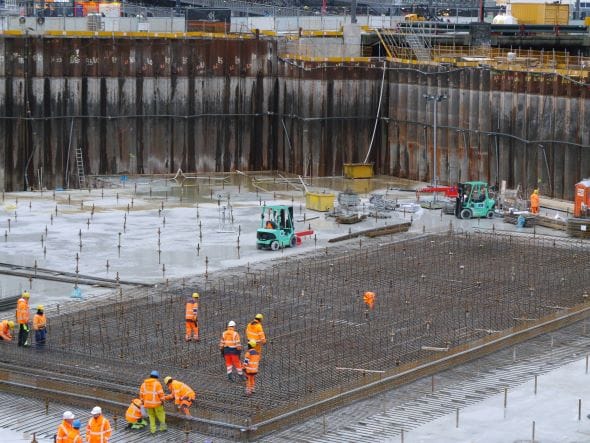
“Soil Mechanics arrived at the borderline between science and art. I use the term “art” to indicate mental processes leading to satisfactory results without the assistance of step-for-step logical reasoning…To acquire competence in the field of earthwork engineering one must live with the soil. One must love it and observe its performance not only in the laboratory but also in the field, to become familiar with those of its manifold properties that are not disclosed by boring records…”
Karl Terzaghi, from https://www.geoengineer.org/education/karl-terzaghi/quotes
Definition
We can define geotechnical engineering based on the Greek and Latin roots of the word. “Geo” means “earth.” “Techn” means “skill or ability.” “Ic” means “nature of and like.” “Al” means “relating to.” When put together geotechnical means skill or ability relating to the nature of earth.
A geotechnical engineer is someone who specializes in the geotechnical concepts of civil engineering. Geotechnical engineers investigate and provide estimates on the engineering behavior of site soils for the built and natural environment. Geotechnical concepts include soil mechanics, slope stability, foundation design, site investigations, and seismic hazards.
Brief History
The concepts at the core of geotechnical engineering have been practiced and used since the dawn of civilization. Humans have worked with and shaped the earth to various uses:
- Building infrastructure such as walls, irrigation canals, and sewers;
- Mining clay or rock for industry; or,
- Modifying slopes for homes and agriculture.
But up until the 20th century, the human concept of soils and engineering of those soils did not go through the rigor of the scientific method. Our collective understanding of soil behavior was based on experience instead of equations and mathematical rules.
All of that changed in the early 1900’s thanks to the father of geotechnical engineering, Karl Terzaghi. His career began as an engineer in Austria and through work in hydroelectric projects in Europe and major dam construction efforts in the United States, Terzaghi developed a passion for the behavior of soils. Terzaghi devoted his life to developing engineering methods for predicting soil behavior and sharing his research with the broader engineering community. Many of the theories, observations, and analyses that Terzaghi developed throughout his career are still in use today.
Why are Geotechnical Engineers Important?
I struggle to think of a single civil engineering project that does not involve or interact with the earth. Geotechnical engineers provide critical information for the design and construction of society’s built infrastructure. We are often one of the first engineering specialists involved in a project and our findings may dictate the overall cost and design of the entire project. During construction, geotechnical engineers provide specialized inspection services to ensure that contractors accurately interpret and implement the engineer’s findings and conclusions. Without geotechnical engineers, we would be unable to build the large skyscrapers, highway system, dams, and levees that make modern life possible.